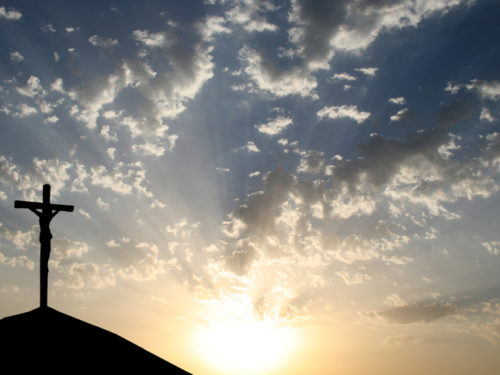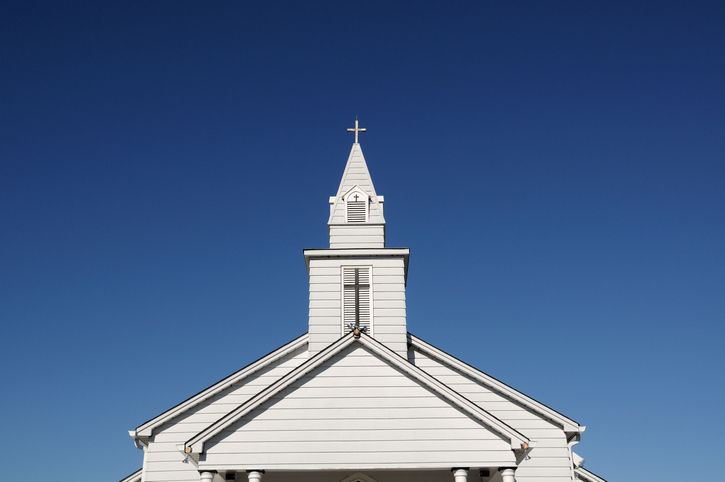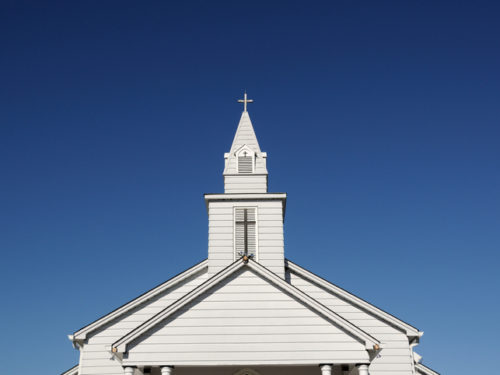 Uncategorized
Uncategorized
In light of the multiple thousands of denominations existing over and against Je...
 Uncategorized
Uncategorized
By: ECO Team
This semester, I’m teaching “The Holy Spirit and the Church.” Our primary textbook is Exploring Ecclesiology: An Evangelical and Ecumenical Introduction by Brad Harper and Paul Louis Metzger. I really like that the chapters come in pairs, first a chapter on a theological idea, then a chapter of case study exploring the relevance of that idea to everyday life in the American church.
The first theological theme that Harper and Metzger consider is “The Church as a Trinitarian Community: The Being-Driven Church.” They argue that we often make the mistake of defining ourselves in terms of what we do – our programs, our innovative projects, and our constant activity – rather than defining ourselves in terms of who we are – a trinitarian community. We are people made in God’s image, recognized as God’s people and household. We are children of our heavenly Father. We are the body and the bride of Jesus Christ. We are the temple of the Holy Spirit. We are called into existence by God, and we live in communion with God – who is Himself a communion of love and gift.
Things get less comfortable with chapter 2, the “so-what” chapter: “The Trinitarian Church Confronts American Individualism.” Harper and Metzger point to three ways in which our individualism is at odds with the call to be a trinitarian community.
It’s a convicting chapter.
I believe that we in ECO have the resources to resist the tug of individualism. Our Presbyterian/Reformed tradition encourages us to think of both sin and salvation communally as well as individually. We know that often sin is institutionalized, and that addressing sin means not only renewing individual hearts but also remaking institutions into places that facilitate both holiness and justice. We expect our faith to have social consequences. We are already putting into place structures of accountability and fellowship that require not only pastors but also elders and deacons to be in community within their own congregations and with officers in other congregations. We are committed to global partnerships wherever we can find them, and we long not only to serve but also to learn from our brothers and sisters around the world.
But from my (admittedly biased) perspective as an historical theologian, I think that our greatest resource is our theological heritage. Because in addition to the manifestations of individualism that Harper and Metzger identify, there is also a temptation to write off as obsolete and unenlightened the wisdom of past eras, to practice what Lewis called “chronological snobbery,” as if simply being further along the timeline makes us wiser.
We need to embrace our confessional tradition because it unites us with brothers and sisters throughout both time and space, because it exposes our own blind spots, and because it requires us to enter imaginatively into past ways of seeing the world. But the confessions are not enough. We need to go further back than the Reformation. After all, the Reformation itself was a movement of “re-forming” – that is, a movement of return. It was never meant to be about innovation. It was meant to be about recovery of a heritage that was in danger of being lost.
The central events of human history are the birth, death, resurrection, and ascension of Jesus Christ. We are further away from that center than the Reformers and much further away than someone like Augustine, or Athanasius, or Irenaeus. These early Christians saw the world from within the same worldview as Jesus and the disciples. They read the Scriptures from the inside, not from outside as we do. Thinking communally came naturally to them. And they kept their focus on the two great mysteries of the Christian faith – that God is both One and Three, and that Jesus Christ is both God and Human. These are things that we need, which is why we must be connected to the oldest of our brothers and sisters in the body of Christ.
That doesn’t mean we all need to become patristic scholars. For many of us, our connection to the past will be mediated by people like C. S. Lewis, people who have the ability to translate old ideas into contemporary language. And many of us need to do that mediating work for others. One of the tasks of a pastor is to translate the Christian tradition for the congregation, so that even people who have never heard the name “Athanasius” will share his passionate commitment to the divinity of Jesus. Of course, pastors can only translate the tradition if they know the tradition.
I’m excited by the new things we’re doing in ECO, but I’m much more excited by the old things that we had abandoned but now are doing again. Those are the things that grow out of our identity as the Church. Who are we? We are a community that includes the dead. Those in the cloud of witnesses are now alive in the presence of Jesus, and so they are still living members of the body of Christ, living stones in the Spirit’s temple, our living brothers and sisters, with whom we share one Father. They are still teaching us. We need to listen.
 Uncategorized
Uncategorized
In light of the multiple thousands of denominations existing over and against Je...
 Uncategorized
Uncategorized
My first pastoral call was to the First Presbyterian Church of Winnfield, a litt...
 Uncategorized
Uncategorized
How much do I trust Jesus? Well, that depends. When He says things that fit with...